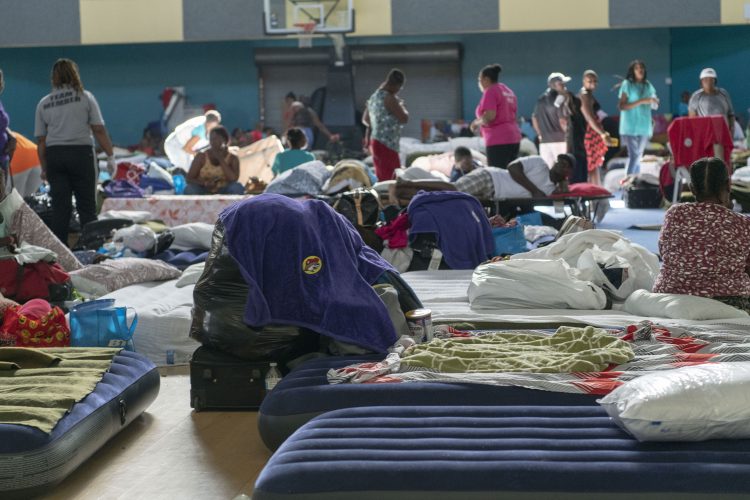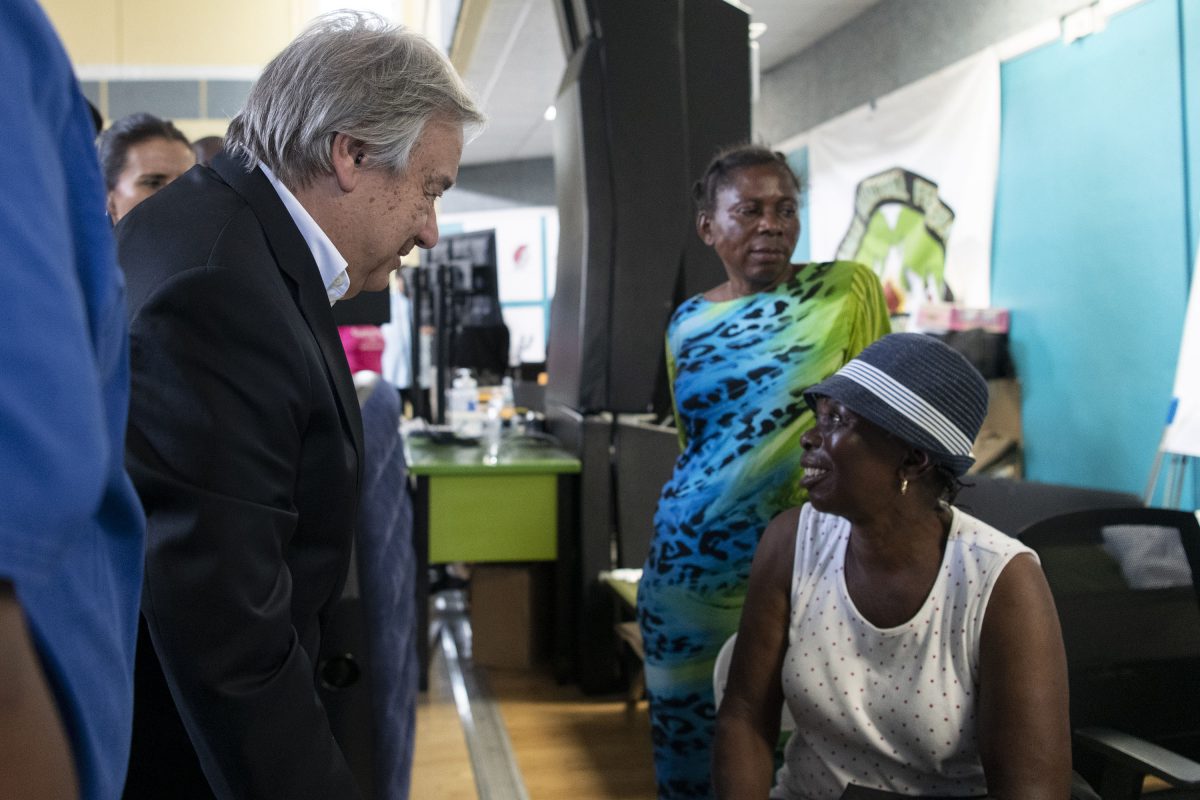During a visit to the Bahamas to show solidarity with the country’s people in the wake of the devastation caused by Hurricane Dorian, United Nations Secretary-General António Guterres reiterated that the international community must take greater action to address the climate crisis.
“…the entire international community must address the climate crisis through raising ambition and action to implement the Paris Agreement,” he said during a joint press encounter with Bahamas Prime Minister Hubert Minnis on Friday, while urging leaders to attend the UN’s upcoming Climate Action Summit in New York “with plans, not speeches.”
Guterres noted that the best available science says we must ensure collectively that global temperature rise does not go beyond 1.5 degrees. He said that there is a window of less than 11 years to avoid irreversible climate disruption and that emissions must be reduced by 45 percent by 2030, and carbon neutrality achieved by 2050. “This is a battle for our lives, but it is a battle we can and must win,” he said. “Solutions exist, but for them to be achieved, we must shift taxes from people’s incomes to carbon, stop subsidising fossil fuels; and stop building new coal plants by 2020 across the world,” he added.

Guterres said in some areas more than three-quarters of all buildings have been destroyed, hospitals are either in ruins, or overwhelmed and schools have been turned into rubble. “Thousands of people will continue to need help with food, water and shelter. Many more facing of course the uncertainties future after losing everything,” he said.
According to Guterres, in the new era of climate crisis, hurricanes and storms are “turbo-charged,” and as a result of warmer oceans they occur with greater intensity and frequency. He pointed to the “horrendous devastation” caused by Cyclone Idai in Mozambique. “Science is telling us: this is just the start,” he noted. “Without urgent action, climate disruption is only going to get worse. July 2019 was the hottest month ever. The period from 2015 to 2019 is on track to be the hottest five years since records began. Every week brings news of climate-related devastation,” he added.
From the Arctic to the Amazon, he noted, wildfires blazed as a result of record high temperatures, while across Africa long-term drought is a growing reality, creating hunger and insecurity.
Guterres said the climate emergency packs “a triple punch of injustice” as the worst impact is on countries with the lowest greenhouse emissions, such as the Bahamas, the poorest and most vulnerable people in those countries suffer most, and repeated storms trap countries in a cycle of disaster and debt.
Reuters reported yesterday that Tropical Storm Humberto battered already devastated parts of the Bahamas with heavy rain and strong winds before crawling northwest on Saturday, and forecasters said it was likely to become a hurricane before the end of the weekend.
Guterres said the financial cost of the damage caused by Dorian is not clear, but it will be in the billions of dollars and the Bahamas cannot be expected to foot this bill alone. As a result, he said new large-scale climate-related disasters demand a new multilateral response. “Climate financing is one element. We must reach the target of $100 billion dollars per year from public and private sources, for mitigation and adaptation in the developing world, as rich countries have been promising for nearly a decade,” he noted, while also saying that access to development financing must also be improved.
In cases like the Bahamas, he said he supports proposals to convert debt into investment in resilience.
Guterres also said that it is very important that those that cause climate change accept the responsibility to reduce their emissions according to what the best available science says is necessary. “And that is why we are asking for countries to commit to carbon neutrality in 2050 and to dramatic reduction emissions in 2030, and to change that so called National Determined Contributions next year as they were supposed to do according to the Paris Agreement. So it’s not only for the Caribbean,” he noted.
However, he added that for the islands of the Caribbean, it is clear that climate change has arrived. “It’s not a threat to the future. It’s happening. And it’s happening with devastating impacts. And so, it is absolutely essential to have a very relevant investment in resilience and adaptation,” he said. “We have seen how climate change impacts differently on different situations, according to how infrastructure was built, how communities are organised, investments are made, the equipment that exist. And so obviously, one of the things that is very clear when I talk with Caribbean governments, is they’re very strongly committed to adaptation, and to resilience. And that is where it’s very important to have international financial support,” he added.





